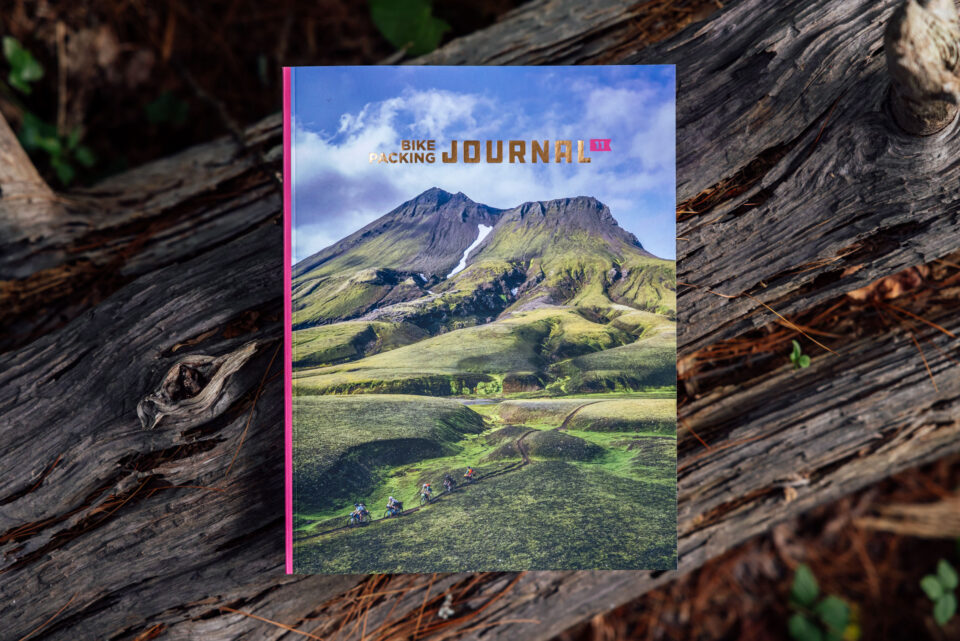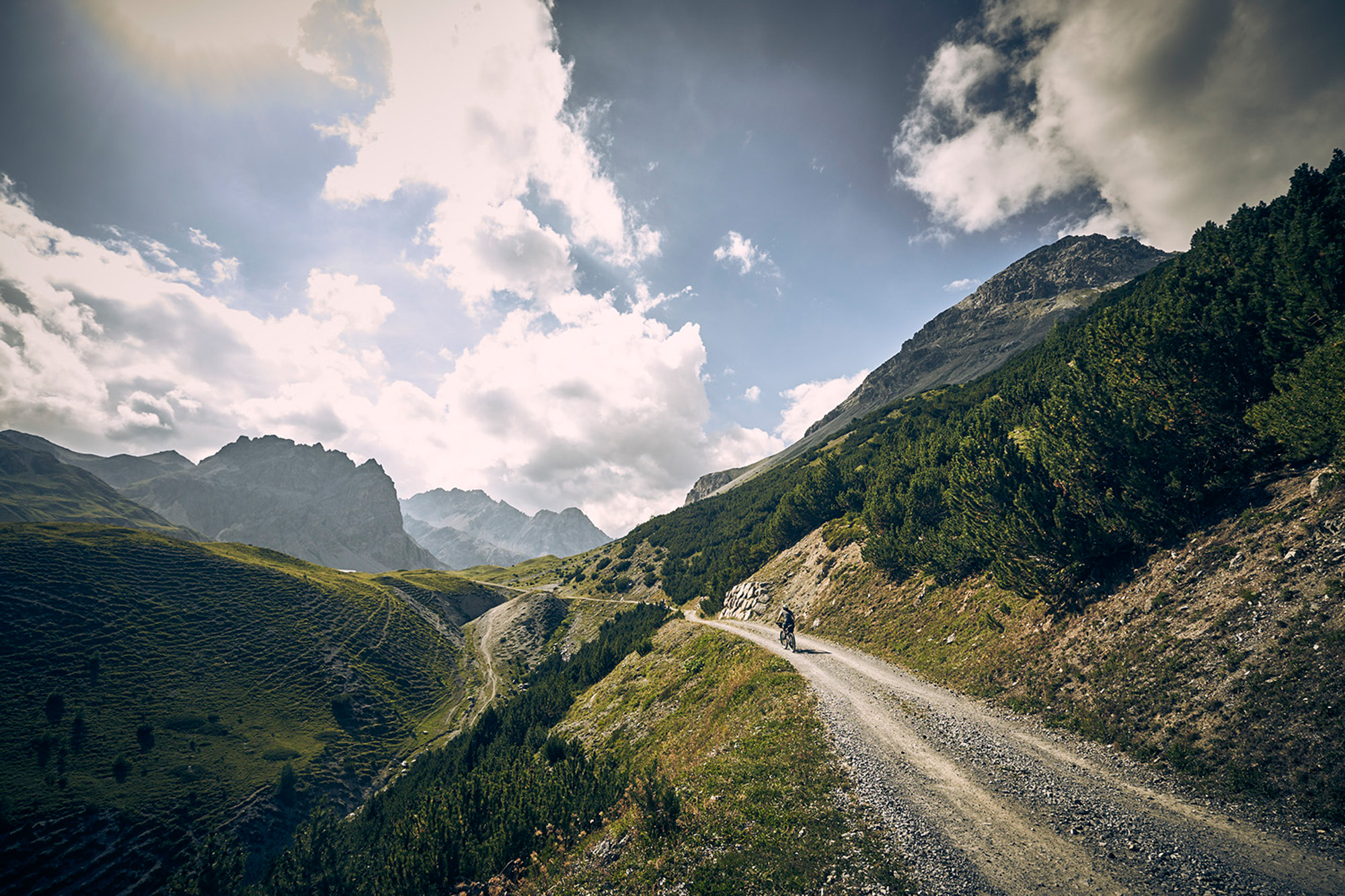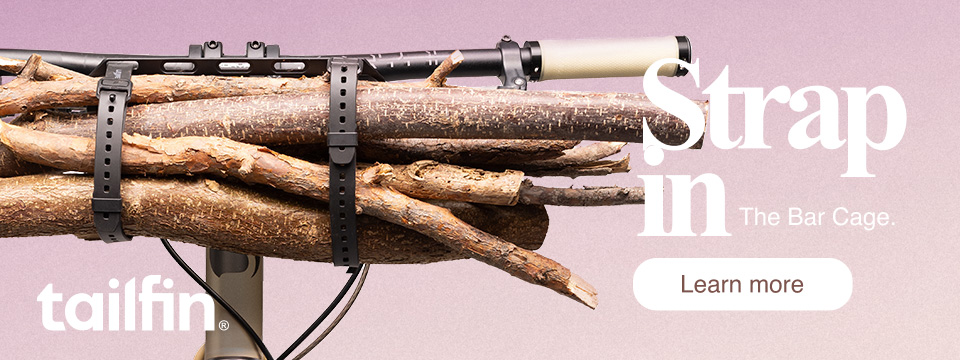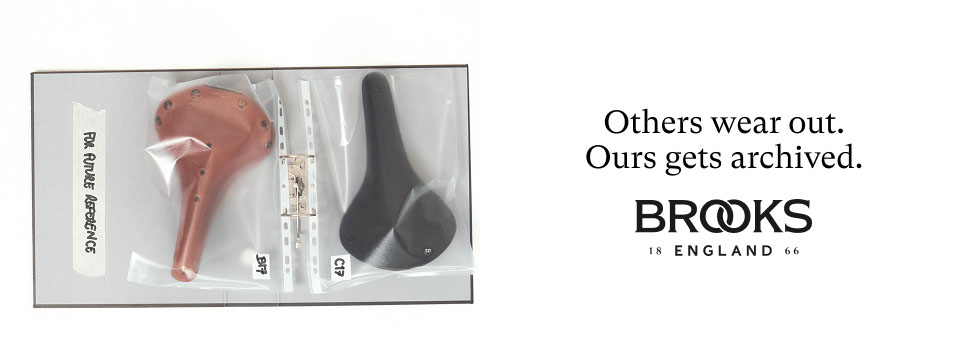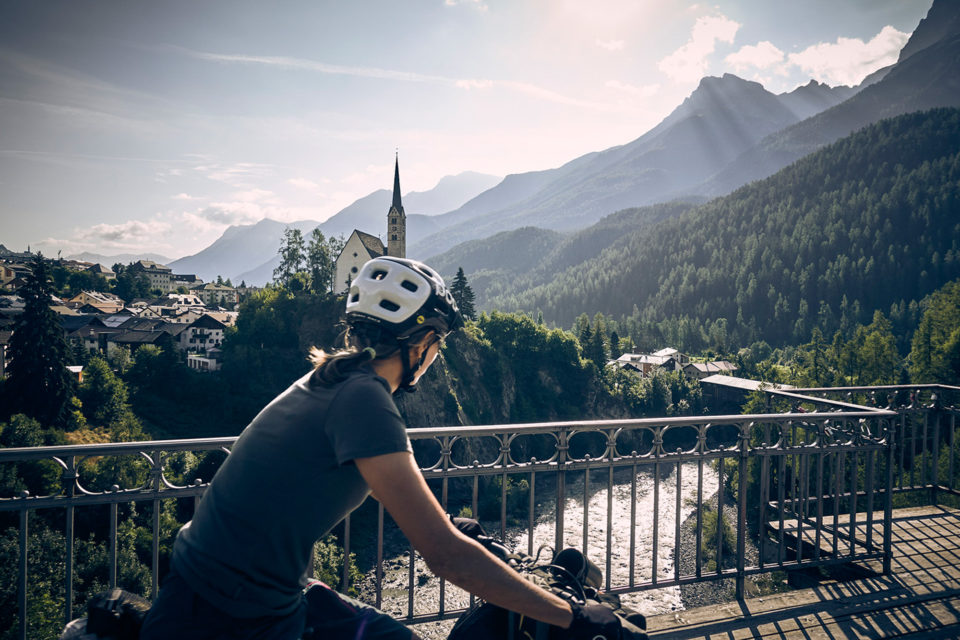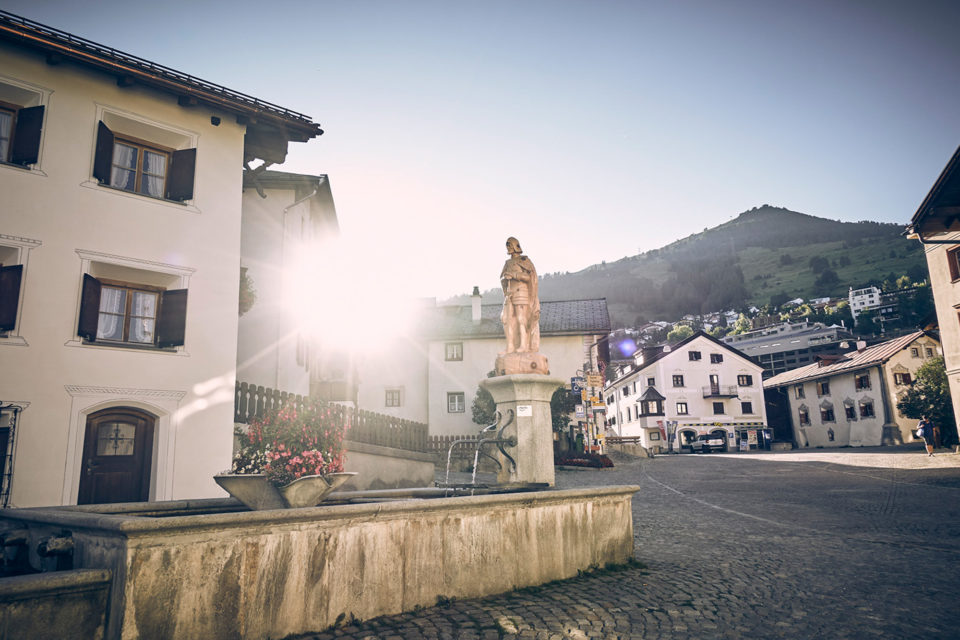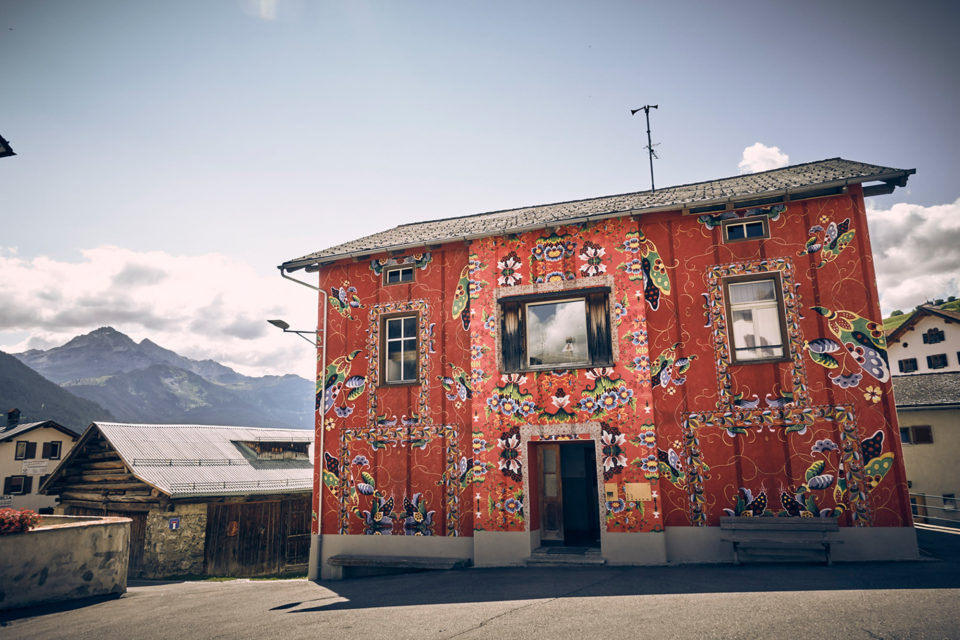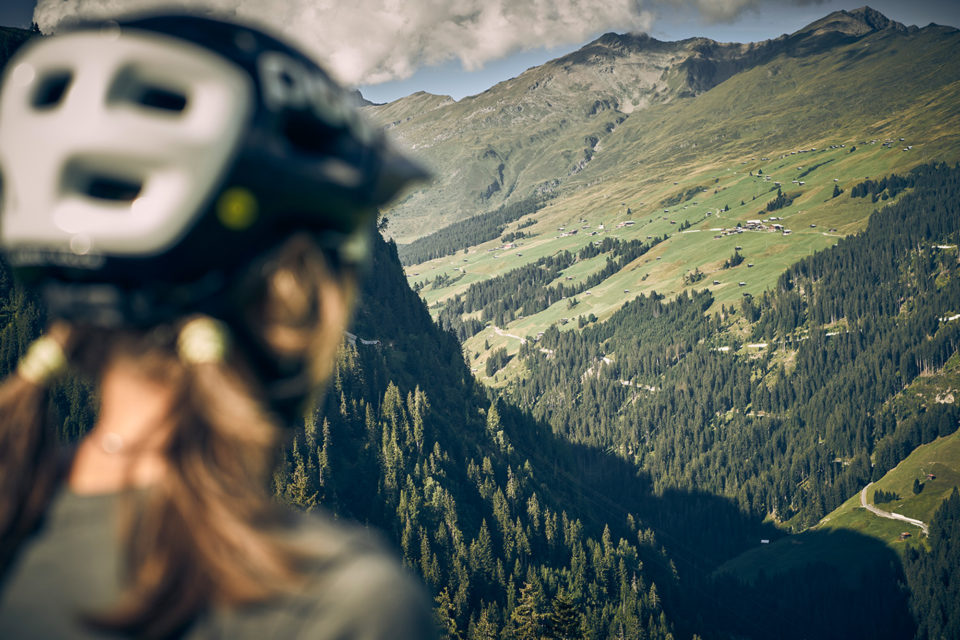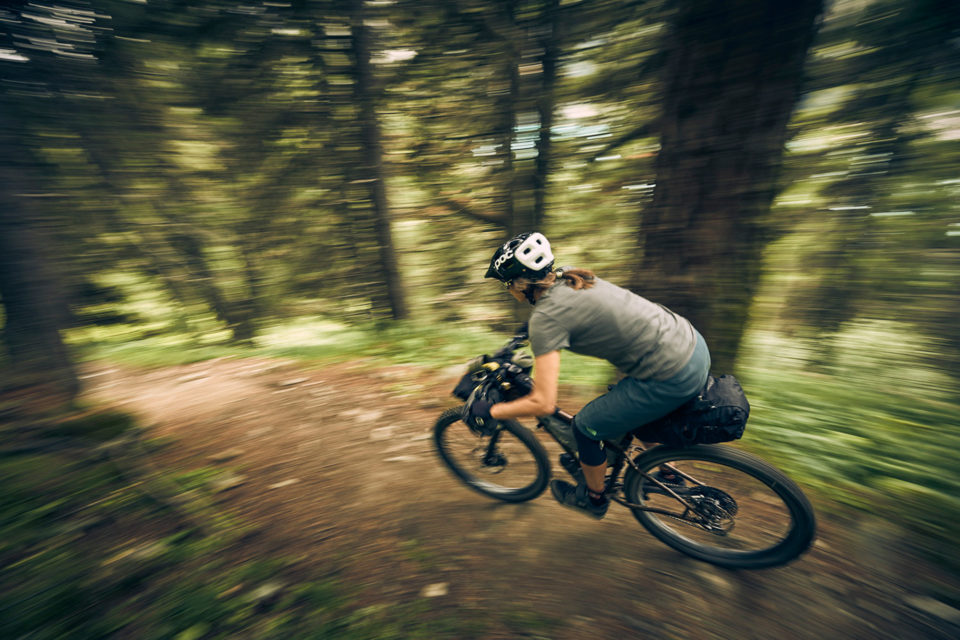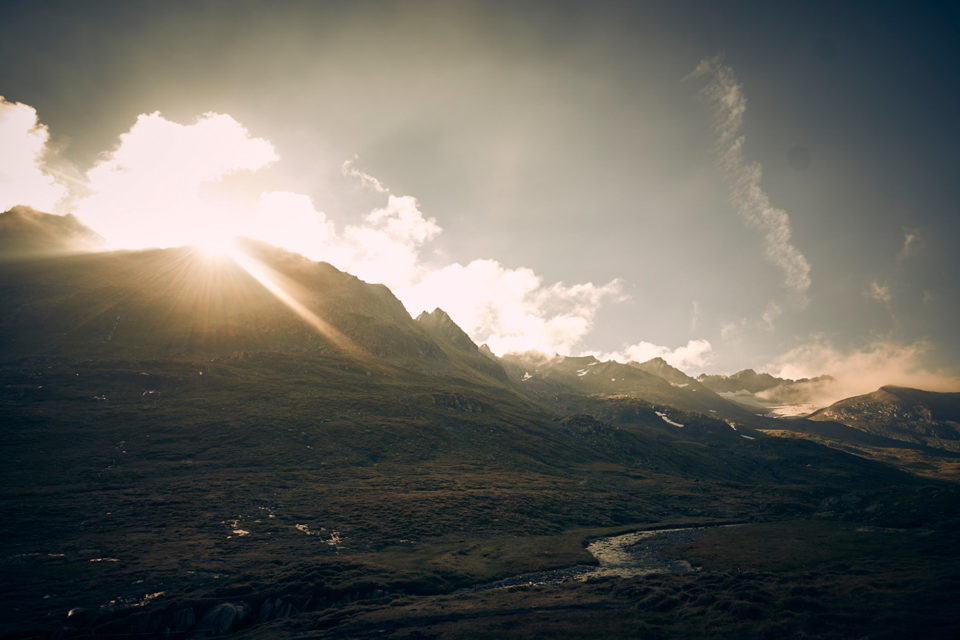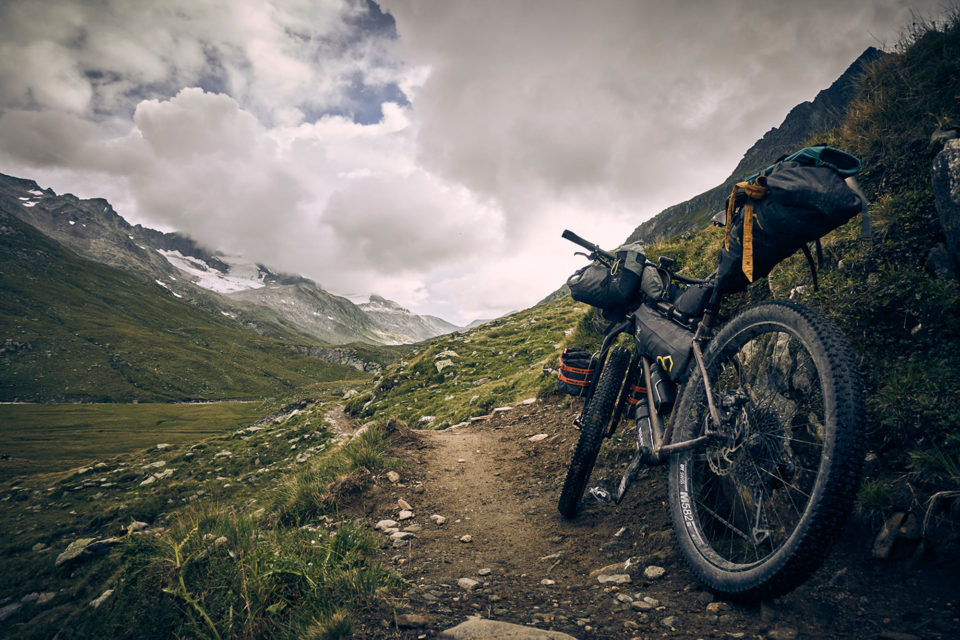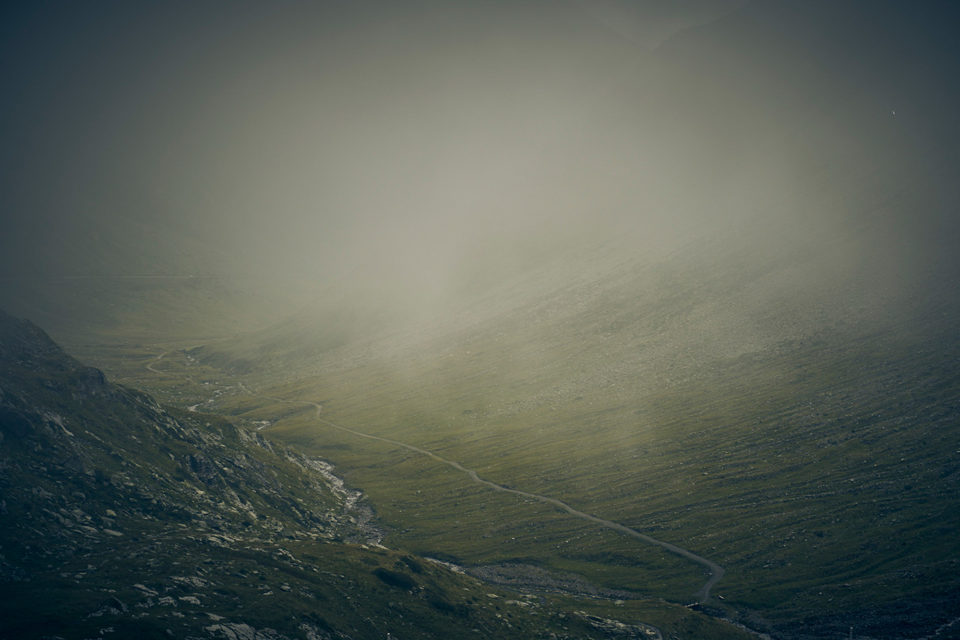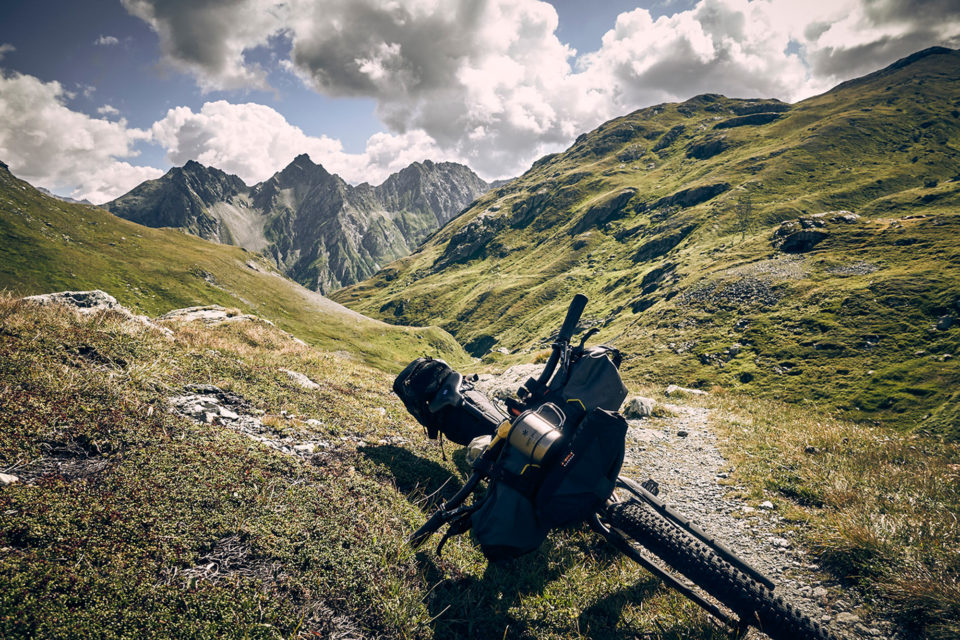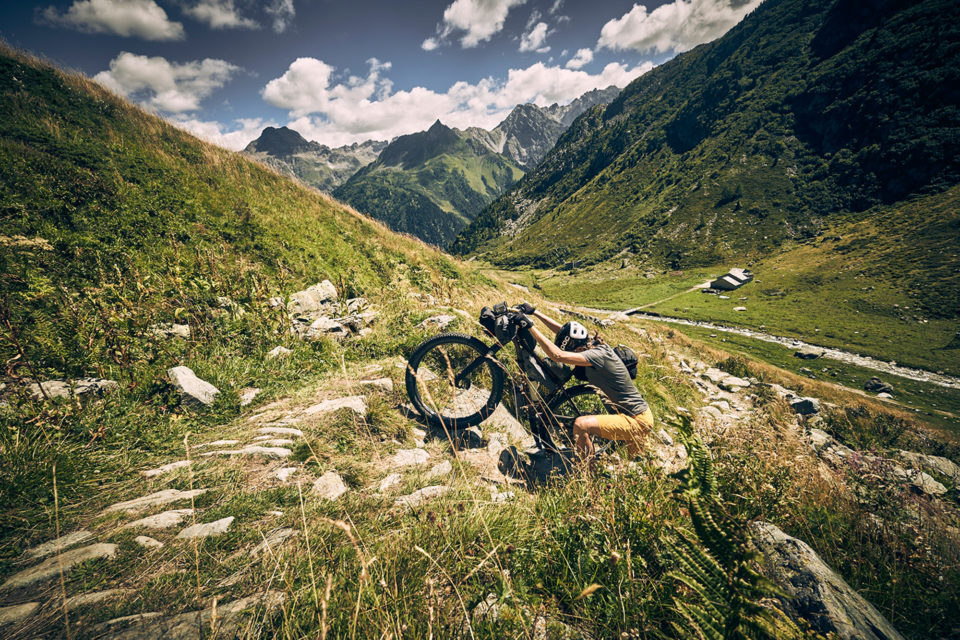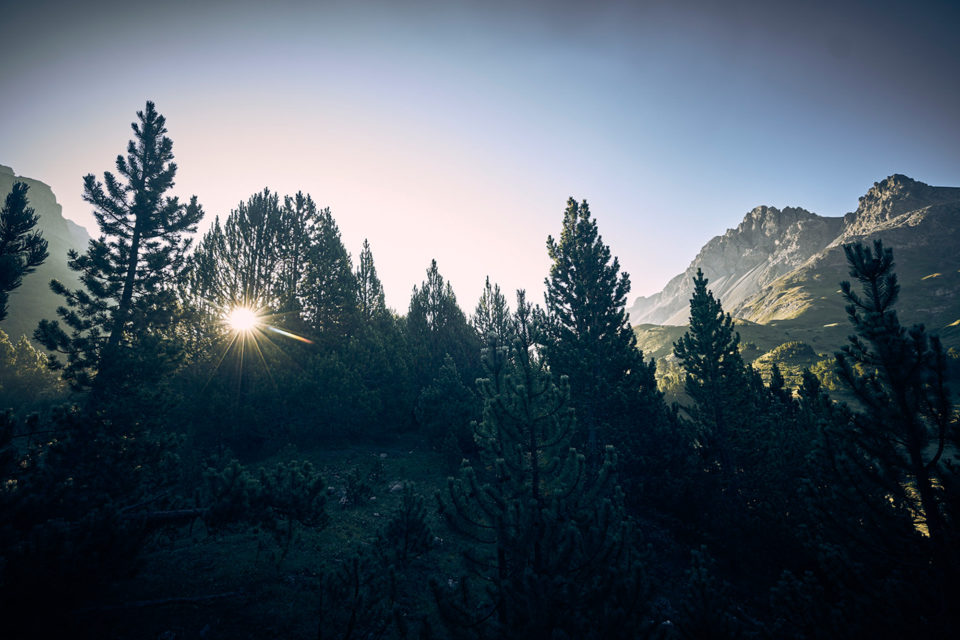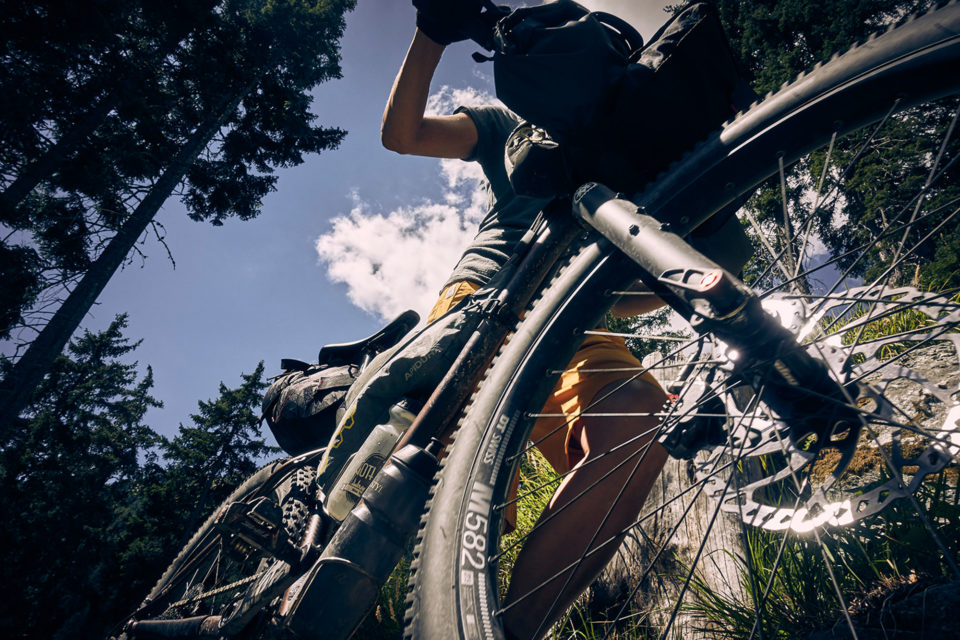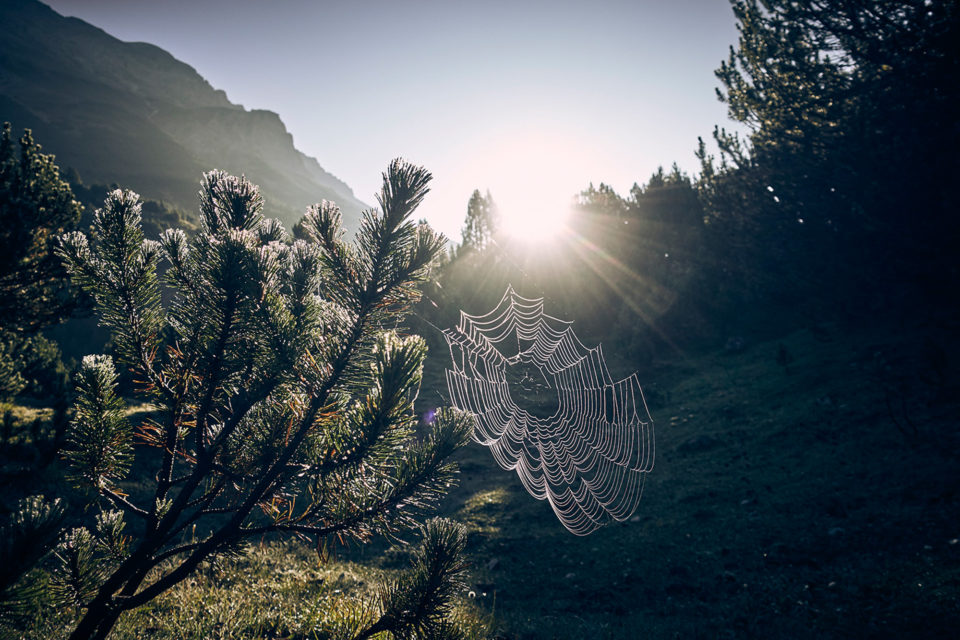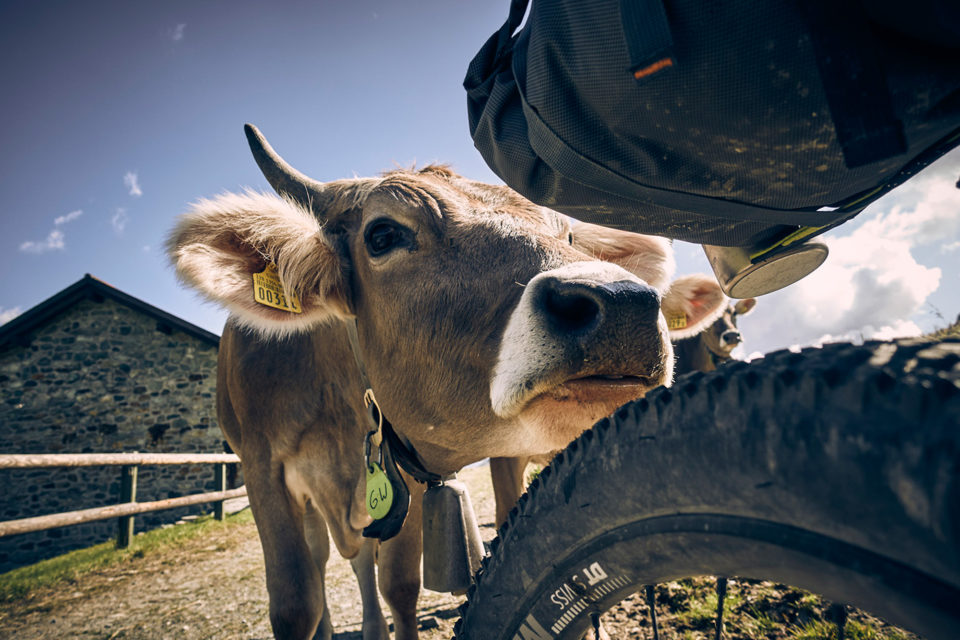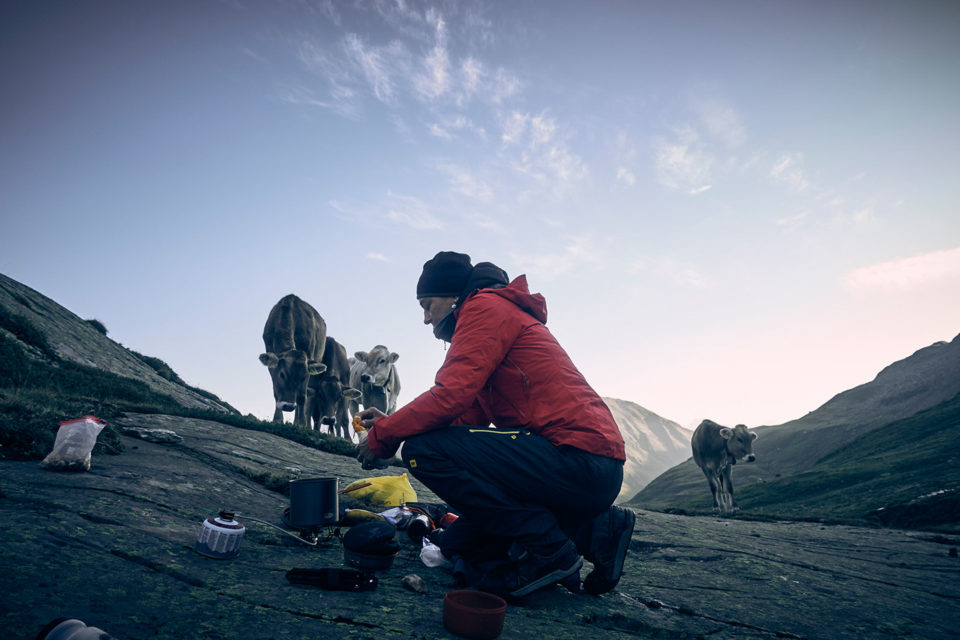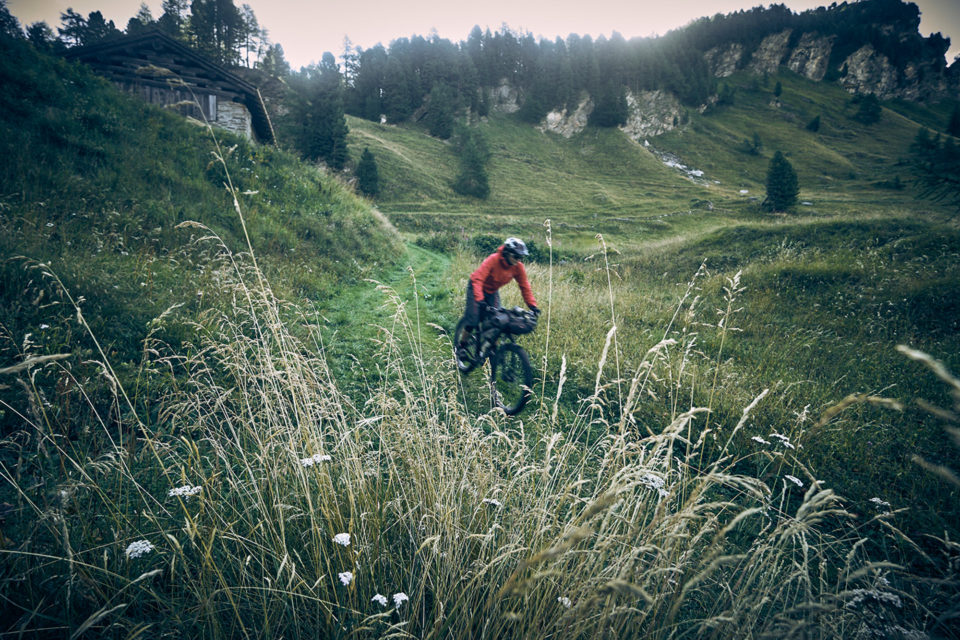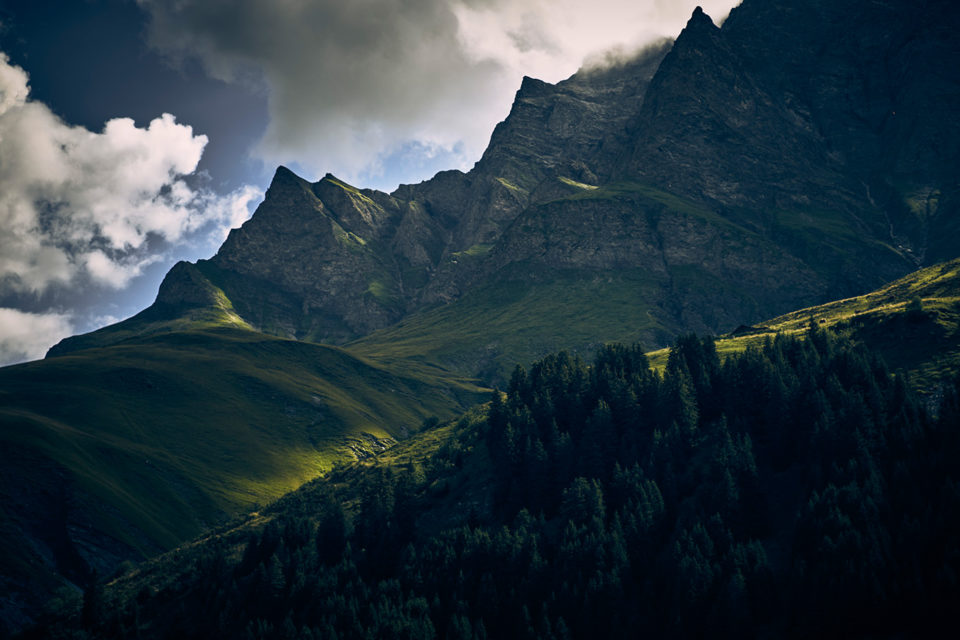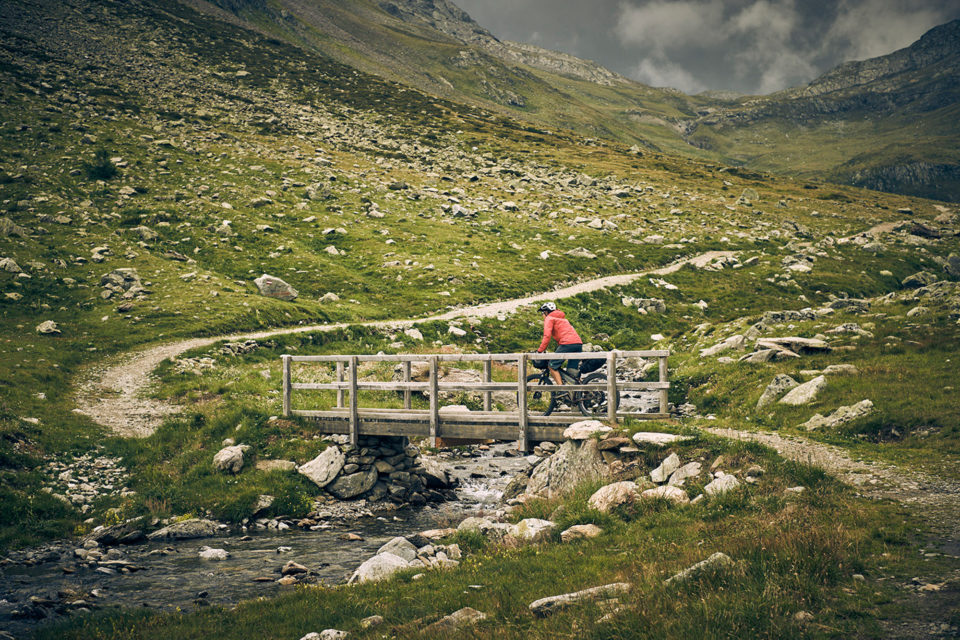Here’s the Story: An Unremarkable Journey
Writer Kristi Stump and photographer Steffen Schraegle traveled to the Swiss Alps for a nine-day bikepacking trip and everything went according to plan. In this piece, Kristi shares some thoughts about the value of simply enjoying a trip for what it is, rather than needing it to be extreme or exciting to be worthy of sharing…
PUBLISHED Sep 4, 2020
Words by Kristi Stump, photos by Steffen Schraegle
As we took our first pedal strokes out of Scuol, Switzerland, I was both nervous and giddy about the massive alpine passes ahead—and the heavy stiff bike that would take me there. It was normal that we had nothing planned for this trip besides a starting point and a GPS route, but taking new bikes brought things to a whole new level. And not just any bikes, fully rigid steel bikes. The kind I hadn’t ridden since my first mountain bike decades ago. Before starting a route described as “extremely challenging in terms of technique and fitness” by the Swiss bikepacking site, it probably would have been smart to test our new bikes, especially loaded with gear. But as usual our last-minute trip chaos didn’t allow time for this, and we literally picked up the bikes, strapped on the bags, and left the next morning.
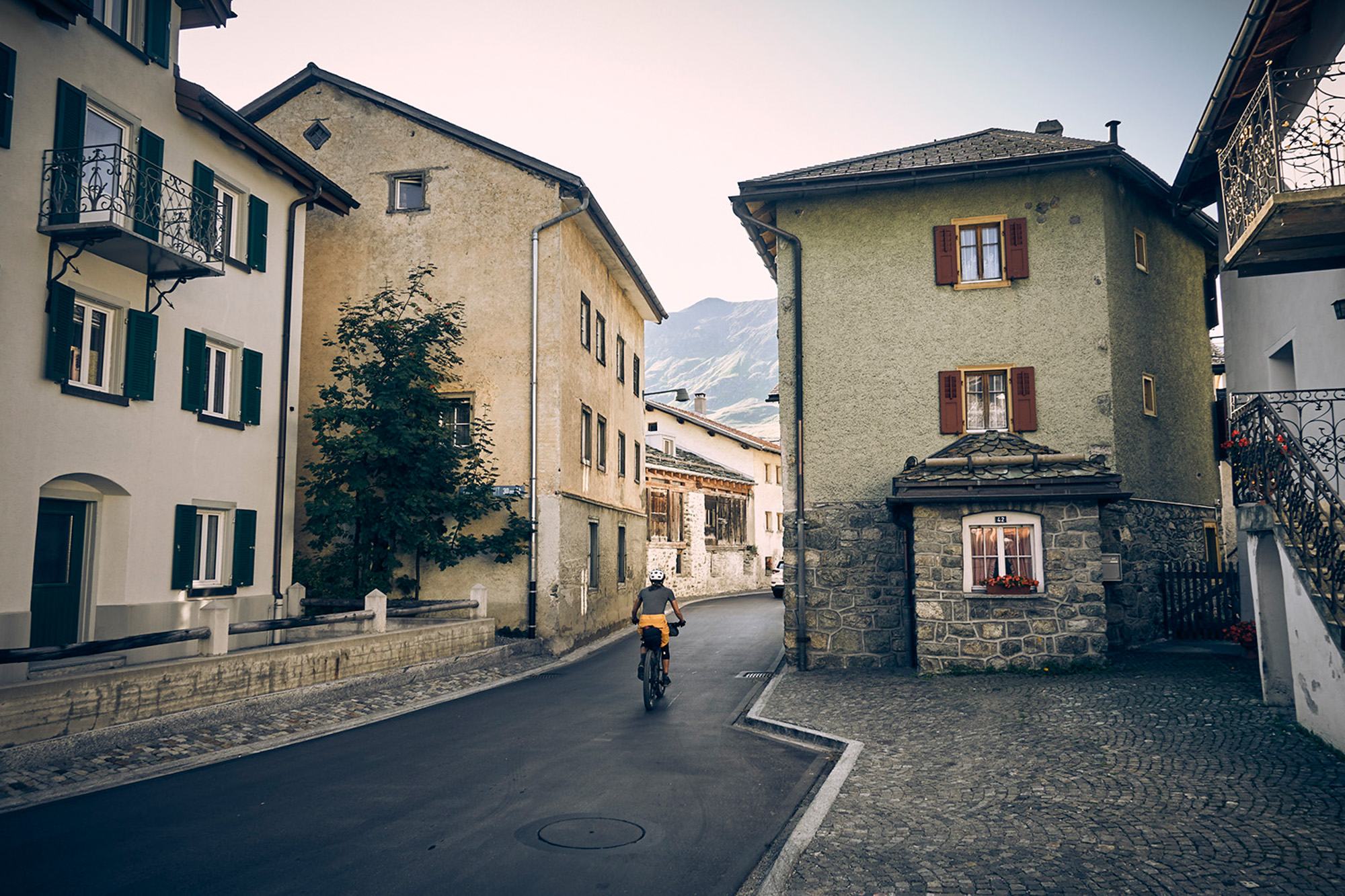
After years of riding bikes with increasingly more suspension, moving parts, and gadgets I had regressed back to my roots. I felt like a beginner again, remembering the days when I didn’t even know what mountain biking was. When I imagined a mess of unrideable steep up and downhill trails through thick untracked forests. Incidentally, that’s what many of our bikepacking routes look like, but that’s another story—a real bikepacking story, full of hardship, bad weather, broken bikes and bones, lost trails, culture shock, and psychological meltdowns. This is not a bikepacking story.
As I navigated the first sketchy downhill, walking sections I would normally ride on a full-suspension bike, I reminisced about my first mountain bike experiences. In those days I couldn’t have imagined that riding bikes would someday lead me to this magical place where I stood in awe of the impressive landscape. But nowadays riding in the Alps or any other beautiful mountain range is considered quite normal. Not only are there countless stories about such travels, but they are disseminated and accessed via modes of communication that until recently didn’t exist.
Cycling adventures used to be shared in relatively small circles: around campfires, in local bike shops, in monthly magazines, and in a small selection of books, films, and photos. Stories were shared with close friends, not broadcast to the entire world with a few simple clicks. Those were the days before smartphones and social media. Before digital platforms like podcasts, blogs, and vlogs. And before everyone was a self-proclaimed writer, photographer, or filmmaker. Stories are spreading faster and wider than ever before and the demand for content grows exponentially. We are inundated with so many stories that we need more extreme, exciting, and controversial versions for them to be interesting.
And that’s exactly why this is not an interesting story. By bikepacking standards, our Swiss trip was rather unremarkable. Besides being physically demanding, the route was a kind of “easy” nine days of pure riding joy. Easy logistics, easy route finding, no crashes or mechanicals. Not even a flat tire. It was a series of one breathtaking view after another, picture perfect villages, smiling locals, and beautifully maintained trails and roads. So, what about these travels that don’t break us? That don’t involve drama? What about the safe travels on marked trails, where the next village is never far, and water fountains and springs hold clean water? Are they any less valuable?

I would bet that many of us often find ourselves in these non-story stories, where the summation of the experience can be wrapped up in just one word: “awesome” or “amazing.” But there is pressure to share something, to tell some kind of narrative, even if it must be embellished to appease the listener or reader. Teetering between reality and exaggeration is nothing new in storytelling, and the stretching of the truth can be an innocent form of self-expression. But when the story becomes more important than the experience itself, it becomes something else—a product to be advertised or a form of marketing and self-promotion. This begs the question: what is the value of an experience without a story? It reminds me of the philosophical question about trees falling in the forest. But in the case of adventure: If no one hears or reads the story, did it actually happen?
After a few awkward downhills I started to relax and appreciate the simplicity and quiet of riding a rigid bike again. Riding simply and simply riding is such a gift, I thought. So often our bike travels involve moving from one logistical concern to the next, always thinking a step ahead to avoid running out of food and water or planning where to sleep before a storm sets in. But there was something extraordinary about our ordinary travel. To be clear, Switzerland is far from ordinary. No matter how many stories, photos, or posts one takes in, it can’t be fully appreciated until experienced first hand. But from a logistical standpoint, the Swiss make it easy. Routes are established, trail signs are ubiquitous, and trains or buses run through even the smallest villages.
Without worry or stress there was space to simply enjoy pedaling, to soak in the beautiful landscape and share it with the person I love. But this kind of perfect travel doesn’t make for a good story. Good stories elicit emotional responses and help connect us to others as we find commonalities in the human experience. Storytelling is an ancient and integral human act just as assimilating a story is essential in understanding the world. But I’m starting to wonder what comes first these days: the yearning for adventure or the desire to tell the story of it afterward.
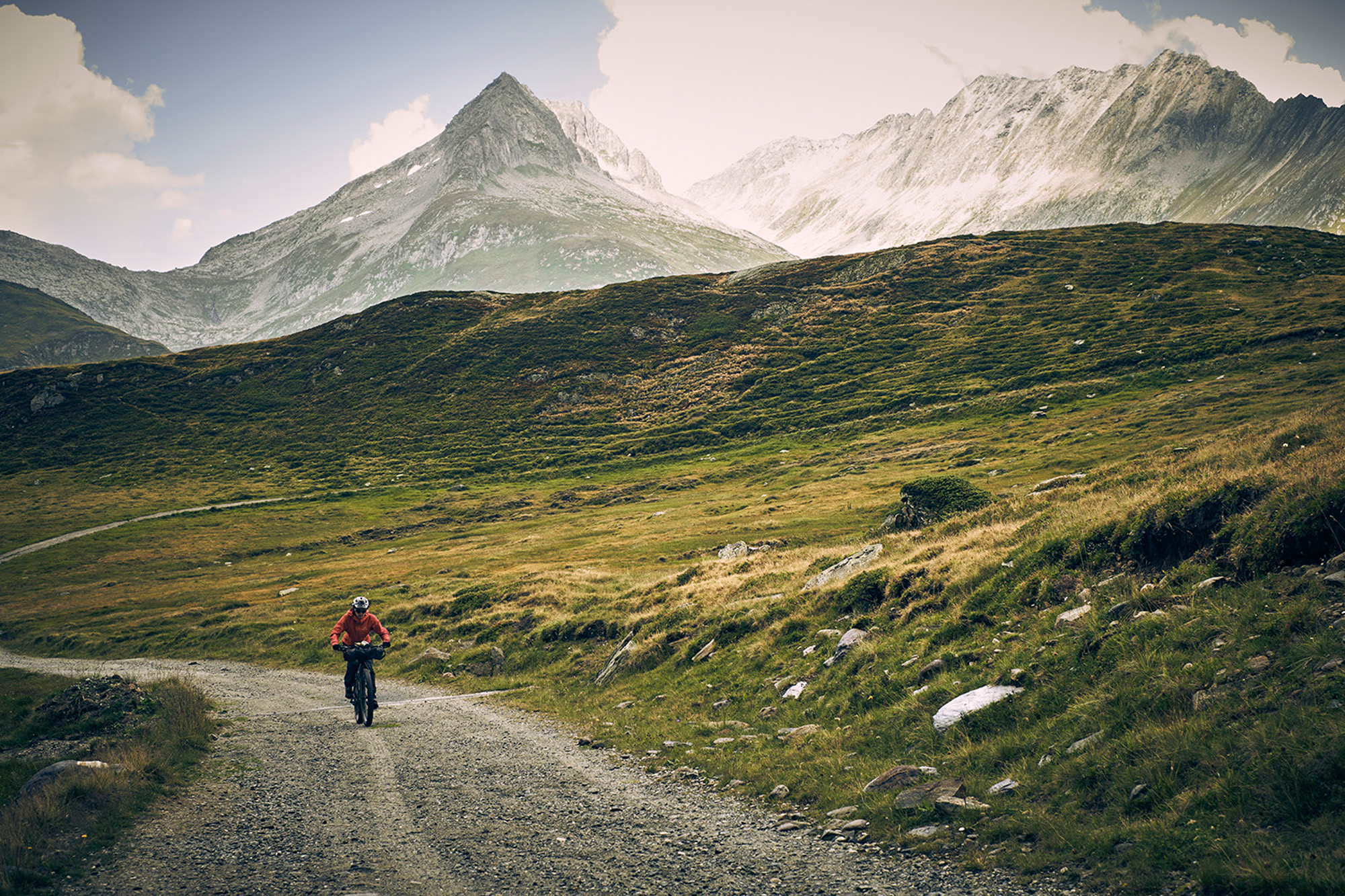
I thought about the different bikes I have ridden over the years, how each of them has brought me physically and figuratively to so many beautiful places, including Switzerland. My life story is inextricably tied to where and what bikes I’ve ridden. From relationships to careers, to where I’ve lived and traveled, almost all can be traced somehow to riding bikes. Personal stories are like maps, showing the route of how we’ve arrived in this place in life—challenges and hardships or achievements and blessings that help shape our lives. We have a deep connection with our stories and telling them is not inherently bad, but it seems increasingly difficult to have a healthy relationship with our stories. We’re encouraged to openly share ourselves, but at the same time warned by therapists that “you are not your story,” that attachment will entrap us and self-perpetuate the behavior cycle. Whatever we think our story is, we cling to it, blame our unhappiness on it, or attribute our success to it, and in the end somehow define ourselves by it. And in the digital world, relentlessly share it.
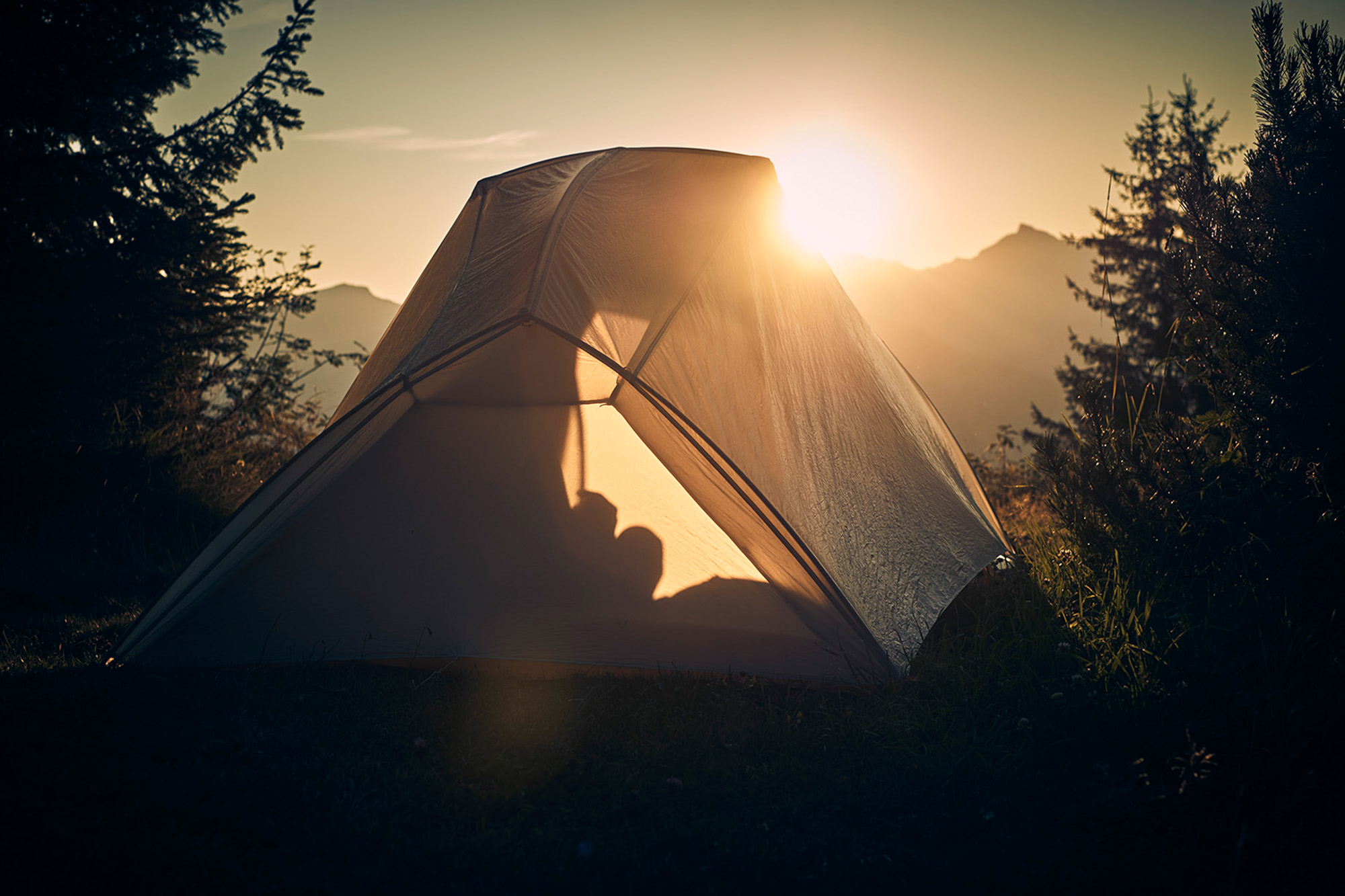
Maybe it’s the introvert in me that sometimes wants to hold onto an experience and keep parts of my story to myself, but I see value in being selective about how, where, and to whom I disclose. And in our oversharing climate I think we should be a bit more discerning and thoughtful about the stories we listen to and read, asking the questions, “Is it genuine? Is it enriching and contributing?” In my opinion some of the most important stories are those we’ll never hear or read, where people are simply riding their bikes with no story to tell, or rather, no reason to tell it. They are somewhere right now, pedaling into a beautiful sunset, past a pile of burning trash or leaning into a headwind, silently going about their experience with no intention of sharing it.
After nine days of perma-grin riding in Switzerland I was happy to not have a story to tell. Being out in the middle of crazy beautiful wilderness is as good as it gets, and the joy of riding a bike is enough. So, the next time I roll up on my overloaded two-wheeled travel bike and someone asks smugly, “So, what’s your story?” I’m just going to look around, shrug my shoulders and say, “This is it.”
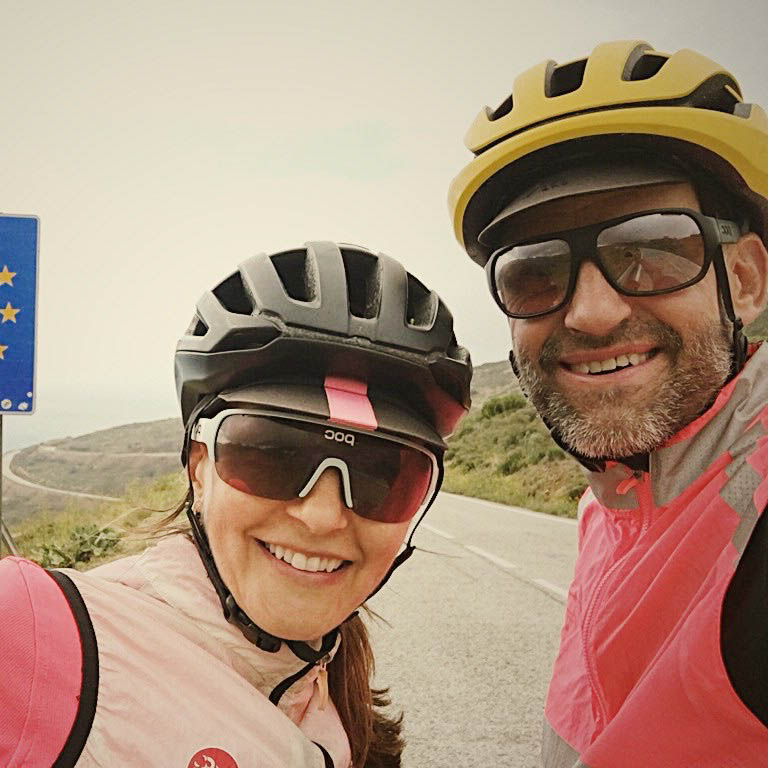
About Kristi Stump and Steffen Schragle
Over the course of three decades, Kristi has ridden, raced, or guided in most of the western US and parts of BC. In 2015 she left her nursing job in Colorado to live and work with Steffen in Europe. Steffen is a professional photographer who has worked internationally for over 20 years. He spends his free time trying to figure out how and where to carry more camera gear on his bike. Together they document what they learn and experience while riding bikes.
Please keep the conversation civil, constructive, and inclusive, or your comment will be removed.



